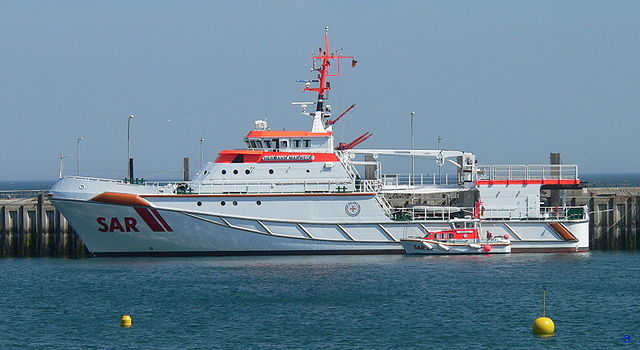The Canadian Coast Guard is the coast guard of Canada. Formed in 1962, the coast guard is tasked with marine search and rescue (SAR), communication, navigation, and transportation issues in Canadian waters, such as navigation aids and icebreaking, marine pollution response, and support for other Canadian government initiatives. The Coast Guard operates 119 vessels of varying sizes and 23 helicopters, along with a variety of smaller craft. The CCG is headquartered in Ottawa, Ontario, and is a special operating agency within Fisheries and Oceans Canada.
CCGS Cap Aupaluk assisting the Royal Canadian Air Force in a training exercise
The Canadian government vessel CGS Stanley escorting two vessels, 1910.
CCGS John A. Macdonald off Burnett Inlet, 1963
View of HMCS Protector facing east, 1943. The naval base later became the first site for the Canadian Coast Guard College.
Search and rescue (SAR) is the search for and provision of aid to people who are in distress or imminent danger. The general field of search and rescue includes many specialty sub-fields, typically determined by the type of terrain the search is conducted over. These include mountain rescue; ground search and rescue, including the use of search and rescue dogs ; urban search and rescue in cities; combat search and rescue on the battlefield and air-sea rescue over water.
A Canadian Forces AgustaWestland CH-149 Cormorant helicopter hoists a man from a Canadian Coast Guard ship
A SAR cruiser of the German Maritime Search and Rescue Service
Rescue rope training
Search and Rescue students give the "I am all right" signal to let the SAR instructors know that they are ready for further instructions at the pool on board Naval Station San Diego.








